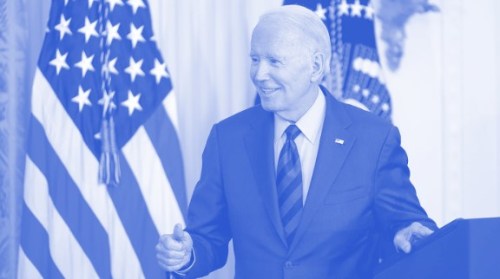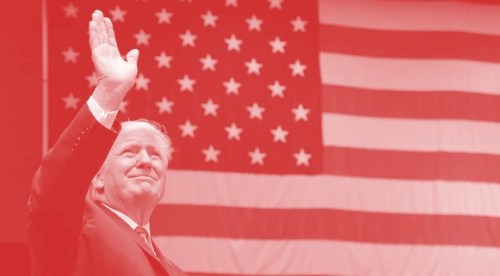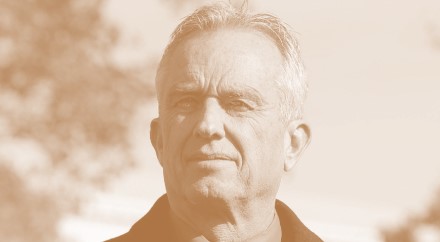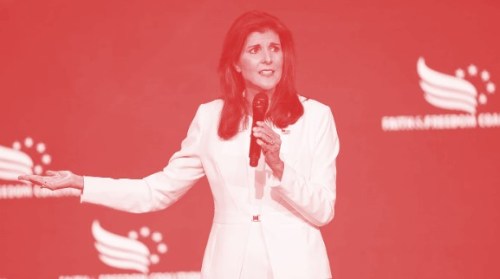RFK Jr. seeks major boost with VP announcement
Robert F. Kennedy Jr.’s impending announcement of his running mate is threatening to roil the 2024 presidential race, with allies and observers saying it could give him a cash influx as well as a major boost of momentum as he looks to get on more state ballots.
Kennedy’s decision to unveil his vice-presidential pick on Tuesday shows a longevity to his bid that many Democrats hoped would have fizzled out by now. Announcing a running mate means the independent candidate has met a necessary benchmark required by two dozen states to be listed on the ballot, something that will bring even more attention to his campaign.
“Having a vice president on the ticket shows that he’s moving forward,” Tony Lyons, co-founder of American Values, Kennedy’s super PAC, told The Hill in an interview this week. “Voters then get to see that he’s very serious about becoming president.”
Team Kennedy’s search for a No. 2 has gotten attention for the unconventional names it’s produced. While many believe Kennedy is likely to choose Nicole Shanahan, a lawyer and mega-donor, others have been privately mused about, with mixed reactions.
Kennedy has publicly talked up a number of people. He previously said that he was considering NFL star Aaron Rodgers, who shares much of Kennedy’s anti-vaccine outlook toward public health.
Rodgers fell into the background, however, after comments he made questioning the mass shooting at Sandy Hook Elementary School surfaced, sparking outrage. Known to look beyond the bounds of convention, Kennedy also expressed support for wrestler and former Minnesota Gov. Jesse Ventura and former Hawaii Rep. Tulsi Gabbard, each of whom have nontraditional ideologies, as well as tech entrepreneur Andrew Yang.
As Kennedy’s event in Oakland, Calif., grew nearer, Shanahan became a front-runner. The West Coast lawyer, who has deep ties in Silicon Valley and is the ex-wife of Google co-founder Sergey Brin, would theoretically bring more money to put toward his ballot access effort.
Ballot experts and strategists say qualifying for dozens of individual states can be so expensive that it can keep a candidate from catching on, despite other signs of traction such as strong polling and a popular message.
One source familiar with Kennedy’s strategy acknowledged that the amount of money it takes to challenge the Democratic and Republican parties is no small feat. As the incumbent, President Biden has a comfortable war chest, reporting $21 million in donations in February and an eye-popping total cash on hand of $71 million, according to the Federal Election Commission.
“It costs so much money,” the pro-Kennedy source said, speaking about the candidate’s operation. “That’s one of the other issues running an independent insurgent campaign: It’s hard to compete financially against the two campaigns. They seemingly have unlimited funds.”
Bringing Shanahan on as his running mate could help assuage those concerns. Kennedy recently insisted that the California lawyer’s access to funds are not his reason to consider her. But in a competitive cycle, proximity to money can’t hurt, and taking the step of declaring a vice president is likely to spur donors to start giving regardless of whom he chooses.
“Anything that gets him closer to being on the ballot in all 50 states and the District of Columbia is a step forward and shows people that he’s going all the way,” said Lyons, whose PAC was behind the $7 million advertisement during the Super Bowl introducing Kennedy to voters. Shanahan was central to that ad spend.
“That, I think, really matters to donors,” he said.
While Kennedy has expressed personal admiration for several names in contention, he has been tight-lipped about his final choice. His campaign manager Amaryllis Fox, who is also his daughter-in-law, offered praise for his selection, saying she “could not be more thrilled with Bobby’s decision,” without disclosing a name.
Viewing it from a historical lens, Kennedy is in company with past candidates who did well after announcing running mates earlier in the cycle.
“RFK Jr. looks somewhat more appealing by having a VP already,” said Richard Winger, the publisher of Ballot Access News and a political analyst.
“Two candidates running outside the major parties who did very well had attractive VP running mates from the very beginning of their runs. Theodore Roosevelt in 1912 had U.S. Senator Hiram Johnson of California, who was a star. They launched their campaign simultaneously. … Roosevelt didn’t need to do a search.”
In contrast, Ross Perot — whose name is often linked to Kennedy for its “spoiler” connotation — didn’t have a set vice president lined up, Winger notes, but instead settled for what he calls “stand-in” candidates who were taken less seriously.
“These campaigns were somewhat less successful as a result,” he said.
Despite the potential boost Kennedy may get after his Tuesday announcement, some strategists still maintain that he has a long way to go to compete against Biden and Trump. His campaign says he has qualified for New Hampshire, Utah and Hawaii.
Meanwhile, Lyons says they’ve also added Georgia, Michigan, Arizona and South Carolina to the list. Two of those battlegrounds — Georgia and Michigan — have already flashed warning signs for Biden, who has lost his ground with some nonwhite and young voters.
“We’re very happy to have completed them,” Lyons said of those states.
With the modest count of states on the books, Kennedy has set a goal of getting on every ballot in the U.S. and D.C. before the fall. Declaring a vice president seven months before Election Day is atypical, but sources say it is essential for Kennedy to gain more access without much time.
Kennedy’s optimism is in part due to the hyperpolarized nature of the electorate this year. He often points to one metric — some 70 percent of voters do not want Biden or former President Trump as their next president — to bolster his pitch. His allies see reasons to be hopeful that his support in some states reaches in the 20s, a respectable figure for any cycle’s insurgent but particularly so when both nominees are so unpopular.
“One of the underlying premises of a third-party run is that they see that if [a candidate] got enough momentum, enough attention from the media and enough money to fund a campaign that people would move,” said Ron Nielson, a veteran strategist who was Libertarian candidate Gary Johnson’s campaign manager.
Nielson knows firsthand the challenge of petitioning for signatures in each state, having gotten Johnson enough access to compete.
“There’s a large independent sector of the population; there’s a lot of people that are dissatisfied with what’s going on and then there’s people who frankly don’t like either Biden or Trump,” Nielson said.
“They think that if someone became viable enough and look like they had momentum, they could win.”
Copyright 2023 Nexstar Media Inc. All rights reserved. This material may not be published, broadcast, rewritten, or redistributed.





